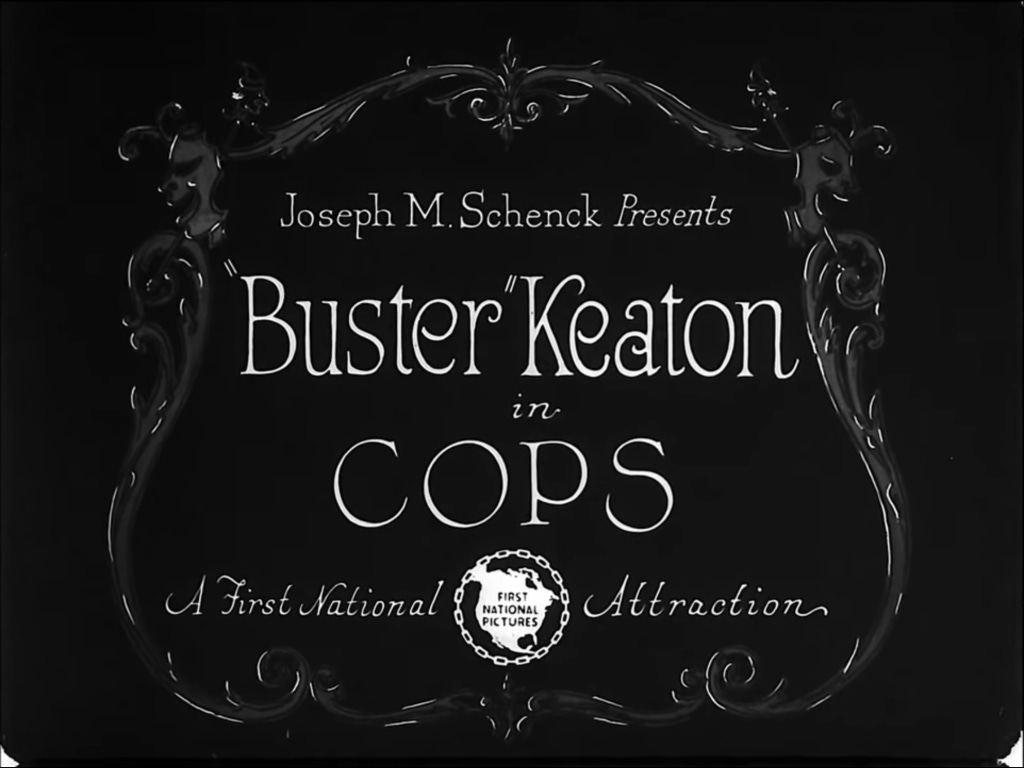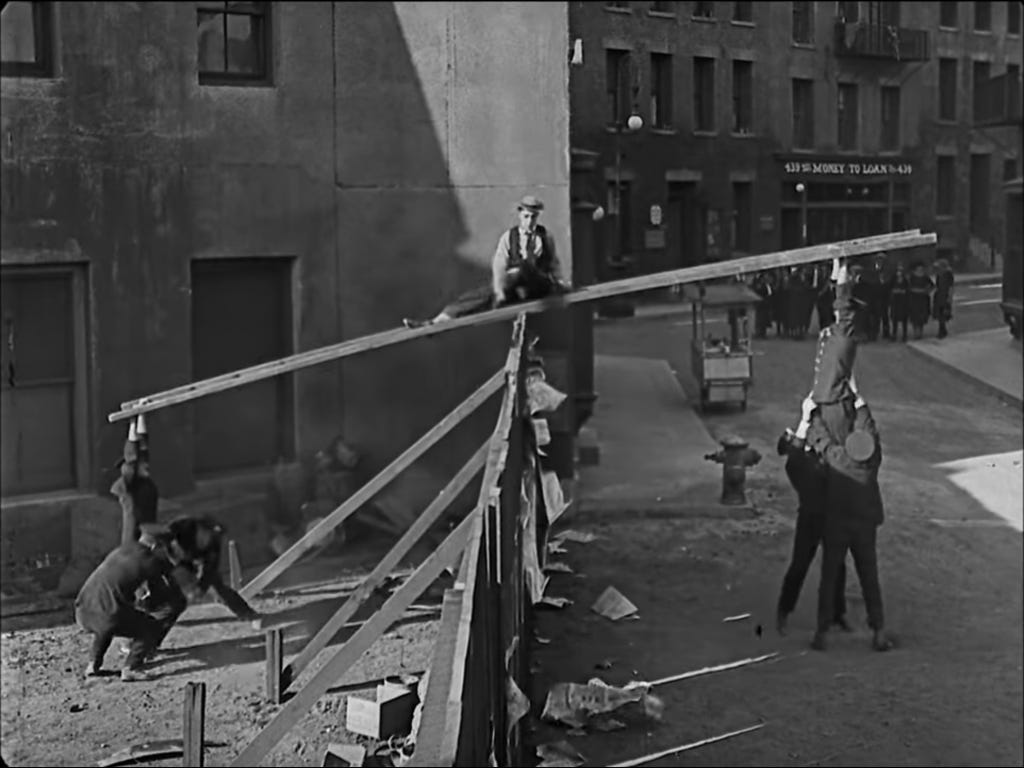Cops (Buster Keaton, 1922)
In Cops, Buster Keaton is told by the woman he’s courting that she’ll only marry him if he becomes a big business man: he commences on a journey of trying to earn big bucks, leading to the entire Los Angeles Police Department chasing after him…
The film begins with Keaton at a gate talking to a woman, and she tells him that she won’t marry him until he’s a big businessman. The first person Keaton bumps into once embarking on his journey is a well-off gentleman waving down a carriage: he picks up the wallet that the man dropped, looks inside, and then gives it back to the man before stealing it back secretly. The gentleman notices, demands the taxi to turn around, and then snatches the wallet back only to realise that Keaton already took the money out, so he circles back round again and gets out to fight Keaton… and then Keaton hops into the carriage and escapes. Funny little successful crime.
Then, while Keaton’s paying for the taxi, a passerby notices that he’s loaded and decides to pose as a family man who’s getting evicted. Keaton decides to buy all of his furniture as an investment - he gets swindled, basically. Keaton then buys a carriage to transport all the furniture and begins making his way to an address he was given.
Keaton then accidentally interrupts this huge police department parade, and this results in the entire police force chasing him for a good few minutes. The film ends with him ‘sacrificing’ himself to the police because the girl he likes gives him a disapproving look.
This film takes on a linear narrative, just like the other Keaton films that we’ve seen, which makes its storytelling style align with what we’re now used to.
At the time, the police force weren’t exactly reflected in America: the country was meant to be this new land full of freedom and opportunity, and the law enforcement was preventing that. This can be reflected through many of Keaton’s works, where he often makes fun of how incompetent the cops are, and this can especially be seen in this film: literally hundreds of policemen are chasing this one man and they can’t catch him, even up to the end where turns himself in. The film is, in this way, reflective of the context in which it was produced and exhibited.
Humour is created in this film mainly through how agile Keaton is, able to get out of situations where he’s being chased. It’s also created through silly little misunderstandings, such as when Keaton buys an entire carriage for £5 when the price was actually for a jacket, and no-one questions it.
I think that this film was good, but I wouldn’t say that it’s one of my favourite films of Keaton’s, although I love the police slander! My favourite scene was the one with the policemen and Keaton on the ladder like a see-saw.






